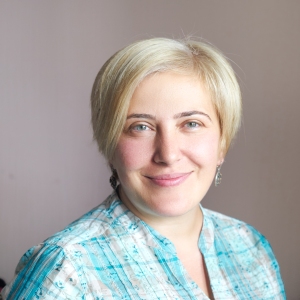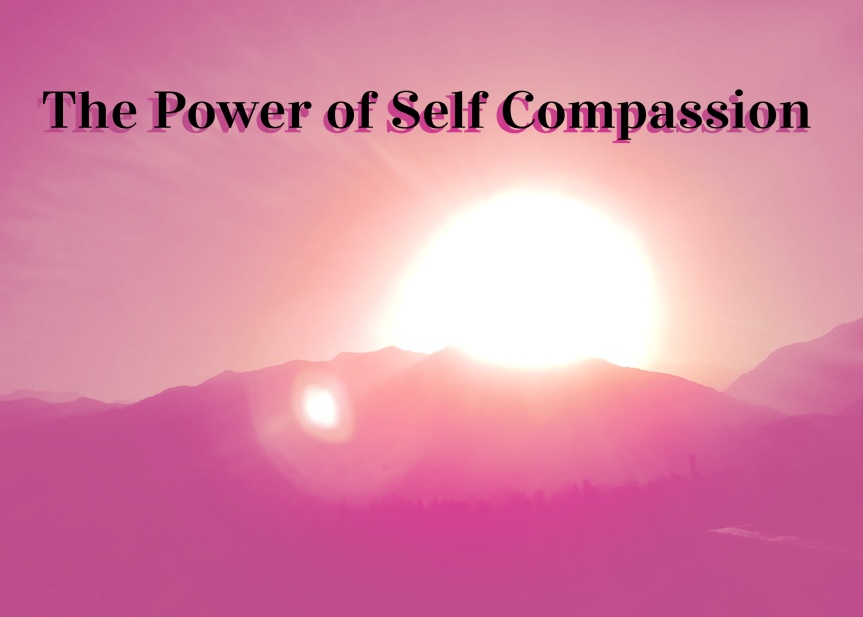In August 2012, my husband and I did ‘The Alchemy of Relatedness’ with Fanny and Colin, a couple who runs retreats in Devon, England. They call their work ‘The Movement of Being.’ On this week-long retreat, held on Dartmoor, we stayed clear of ‘normal’ distractions. In the mornings we sat outside facing the lush countryside of Devon and listened to bird song. Each day, the group met in a circle. If something came up, we had the opportunity to speak up and process our feelings.
It’s amazing how much stuff comes to surface when we are willing to slow down and embrace stillness. I loved the time inside the circle. Feeling held and relatively safe, I could allow my feelings to surface.
But time outside of the circle was a sheer torture. I know many people feel socially awkward. For me, it was verging on a phobia. Most of the time, I hid behind my husband. We huddled together, away from the rest of the group, enjoying the safety of our connection.
On a typical day we had three circles. Towards the end of the retreat, Fanny and Colin suggested that we have a ‘free’ evening. The plan was to gather around bonfire after dinner, chat and sing. Anxious, I went to have a shower. When I came out, my husband was sitting at the table with the rest of the group having his dinner. In that moment, something flipped inside of me. In total despair, I ran away. He was with them too. I was totally alone. I couldn’t bear the thought of joining the group at the table. Individually they were all lovely people. There wasn’t a single person I felt uncomfortable with. But as a group, they intimidated me: it was as if I disappeared.
I walked around the village for over an hour waiting for someone to notice my absence and come looking for me.
No one came.
Tired of crying and walking, I returned to the venue.
‘Did you go for a walk?’ My husband asked. He had no idea about my drama. His casual tone was the last straw and I fell apart.
‘Ask Colin to hold a space for you to process this,’ he suggested once I couldn’t cry anymore.
15 minutes later, I was sitting with Colin on the ground not far from the bonfire and telling him about how I got triggered.
‘Can you allow yourself to be touched by this?’ He asked softly.
The words felt like an empty sound.
‘Can you feel compassion to this part of yourself?’ He rephrased the question.
I couldn’t.
‘How do I do that?’ I asked eventually.
‘Well, if a little girl, perhaps your daughter or sister, told you that this is how they felt…’
Finally, I got it. That was the only way I could feel self-compassion. For years afterwards, I clung to the image and returned to that little girl every time I was open to feeling self-compassion.
You see, I was brought up in a culture where when a child falls down, an adult can hit the child and reprimand them more. ‘I told you not to…’ was a common phrase used in my family, if something went wrong. When I failed, I didn’t share with my loved ones. I knew I wasn’t going to get a compassionate response.
What’s worse, I internalised their reactions. So, when something wasn’t quite right, I beat myself up, adding insult to the injury.
It was only last summer that I really started to learn giving myself compassion. The power of self-compassion is astounding. On the face of it, the process I use is deceptively simple. All I need to do is to focus on my heart centre and solar plexus, and say ‘I’m so sorry [fill in the blank]. Yet within a few minutes, I feel lighter and calmer. It works without fail and has the capacity to heal the deepest wounds.
Practicing self-compassion had several added benefits for me:
- Self-awareness: to name what I feel, I need to be willing to stay present to the discomfort.
- Acceptance: to move through the pain, I need to face whatever is. It doesn’t mean resigning myself to the situation. Paradoxically, I can transform the pain once I acknowledge and accept what is.
- Kindness: with self-compassion comes kindness. It’s not a fluffy type of feeling. It’s more of a softening and relaxation in the face of discomfort.
I’m half-way through a certification programme in Compassion Key with Edward Mannix. As part of this programme, I am offering free Compassion Key sessions. If you’d like to experience the power of self-directed compassion and shift a major issue in your life, give it a shot. It’s amazing!
If I can give myself compassion and transform my life, so can you.
This guest post is by Gulara Vincent.
Dr Gulara Vincent is a writer, blogger, and a university law lecturer. Her book proposal was a winner of the Transformational Author Experience in the USA in 2015. She lives in Birmingham, England, with her husband and two young children. You can visit her writer’s blog at gularavincent.com or connect with her on Facebook and Twitter (@gulara_vincent).



That’s a steep learning curve, and one I’m so glad you shared. Thank you, Gulara 🙂
LikeLiked by 1 person
Thank you, Lizzi. I think many people suffer from the tyranny of the inner critic. There’s another way and I’m glad I discovered it.
LikeLiked by 1 person
I know I’ve suffered from it, and I know others who do…it’s all a process of self-discovery, I guess, and figuring out what works.
LikeLiked by 1 person
Absolutely, Lizzi, we have to find our own way. Thank you for reading and your support.
LikeLiked by 1 person
Thank you for sharing so openly and honestly, Gulara. Your ability to develop compassion for yourself is inspiring. I wish you well with your Compassion Key sessions. I am certain they will be of benefit to many.
LikeLiked by 2 people
Thank you, Norah, for reading and commenting here. I appreciate your support so much!
LikeLiked by 1 person
My pleasure! 🙂
LikeLiked by 1 person
This moved me hugely Gulara thank you … it’s extraordinary how we internalise stuff from our childhood. I’ve been there, feeling quite invisible and of course that complex still gets tweaked every now and then. My brother (crippled with depression) will be here from next week for a while and I will see if he can use this exercise.
LikeLiked by 3 people
Thank you, Susan, your words touch my heart. Yes, we take on too much as children, imagining that all adults around us know what they are doing or talking about. It takes years to realise that sometimes they’ve been acting out their own wounds and we took them at face value. I wish your brother well.
LikeLiked by 1 person
Oh boy, did your story ‘hook’ me. My eyes are watering. I can SO relate to some of your childhood experiences in the way your family treated you. I had those experiences with my mother. I am learning to not beat myself up, but sometimes turning off the voices in my head is difficult, therefore the benefit of my walks along the waterfront, nearly daily. Thank you for this story and your wisdom.
LikeLiked by 2 people
It takes so much time and discipline to stop the unhealthy patterns, isn’t it Gwynn. Thank you for your kind words and I’m glad the post moved you and served as a useful reminder. The walks along the waterfront sounds like a great antidote. Big hugs!
LikeLiked by 1 person
Moving journey, Gulara. Everything returns to childhood and it’s somewhat scary when it’s our turn to be parents. Returning to the child we were and feeling compassion toward this younger version of ourselves if indeed kep to universal compassion, in turn key to a kinder world.
LikeLiked by 1 person
Absolutely, Evelyne, a kinder world starts with a simple act of kindness to ourselves. It all starts within. Thank you so much for reading and all your support.
LikeLiked by 2 people
Such a beautiful post. That retreat sounds amazing. I would love to be able to do something like that someday. xoxo
LikeLiked by 1 person
Thank you so much for your kind words. Those retreats are magic. I miss them dearly. Not many opportunities to drop deeper with younger kids….
LikeLike
What a powerful example, Gulara. Thank you for sharing. I’m in the process of healing from the wounds of childhood too.
LikeLiked by 1 person
Corinne, thank you for reading and commenting. I’m sorry for a late reply, just recently got back from a holiday. I hope your healing from childhood wounds goes gently. Much love and light.
LikeLike
A few weeks ago, Gulara offered me a Compassion Key session. It was very powerful and she guided me through it with compassion and competence untill I felt at peace.
Highly recommended!
LikeLiked by 1 person
Thank you for championing Compassion Key, Angela! It was an absolute honour and pleasure to hold the space for you. Sending big hug!
LikeLiked by 1 person
A really lovely blog post. I can so relate to this experience. I also grew up in an environment that was devout of compassion. There was no physical abuse but there was a lot of emotional abuse. It’s tough to build compassion for yourself when you weren’t taught the skills to do so and you’re winging it on your own. My sister sent me a book on the Law Of Attraction which I’m reading now and it’s helping me to build self-compassion, among other things.
Tam
LikeLiked by 1 person
Thank you so much for your kind words about the post. You are so right – building the compassion muscle later on in life can be difficult. But it’s possible. I’m so glad you are finding a way to bring more compassion into your life. Many blessings, Tam.
LikeLiked by 1 person
Precious words, thank you.
LikeLiked by 1 person
Thank you for your kind comment. Sorry I haven’t replied sooner. I’m grateful you returned and left another comment.
LikeLike
Hi, Thank you for your article, very moving. I can identify closely with you until it comes to comforting the younger me/person – I just cannot receive those words.
Where next?
LikeLiked by 1 person
Thank you for your kind words about the post. I used to find it really difficult to connect with my wounded aspects because I identified with them so strongly. Speaking to my younger self used to feel unbearable, never mind saying loving things. It can be done though – with the right (for you) tools, time and patience. Please, be gentle with yourself.
LikeLike